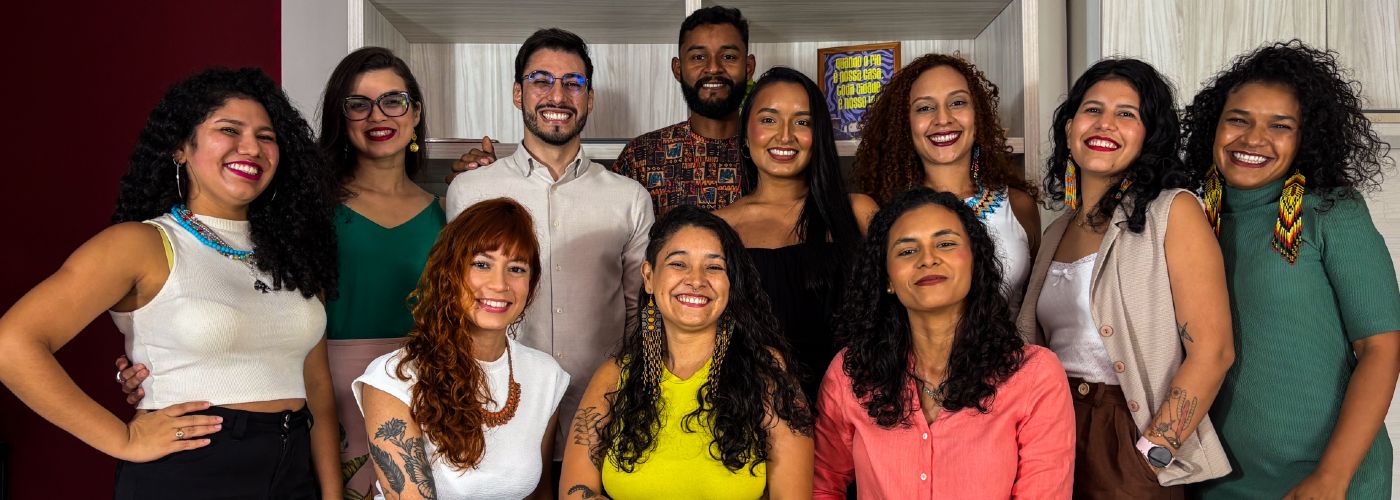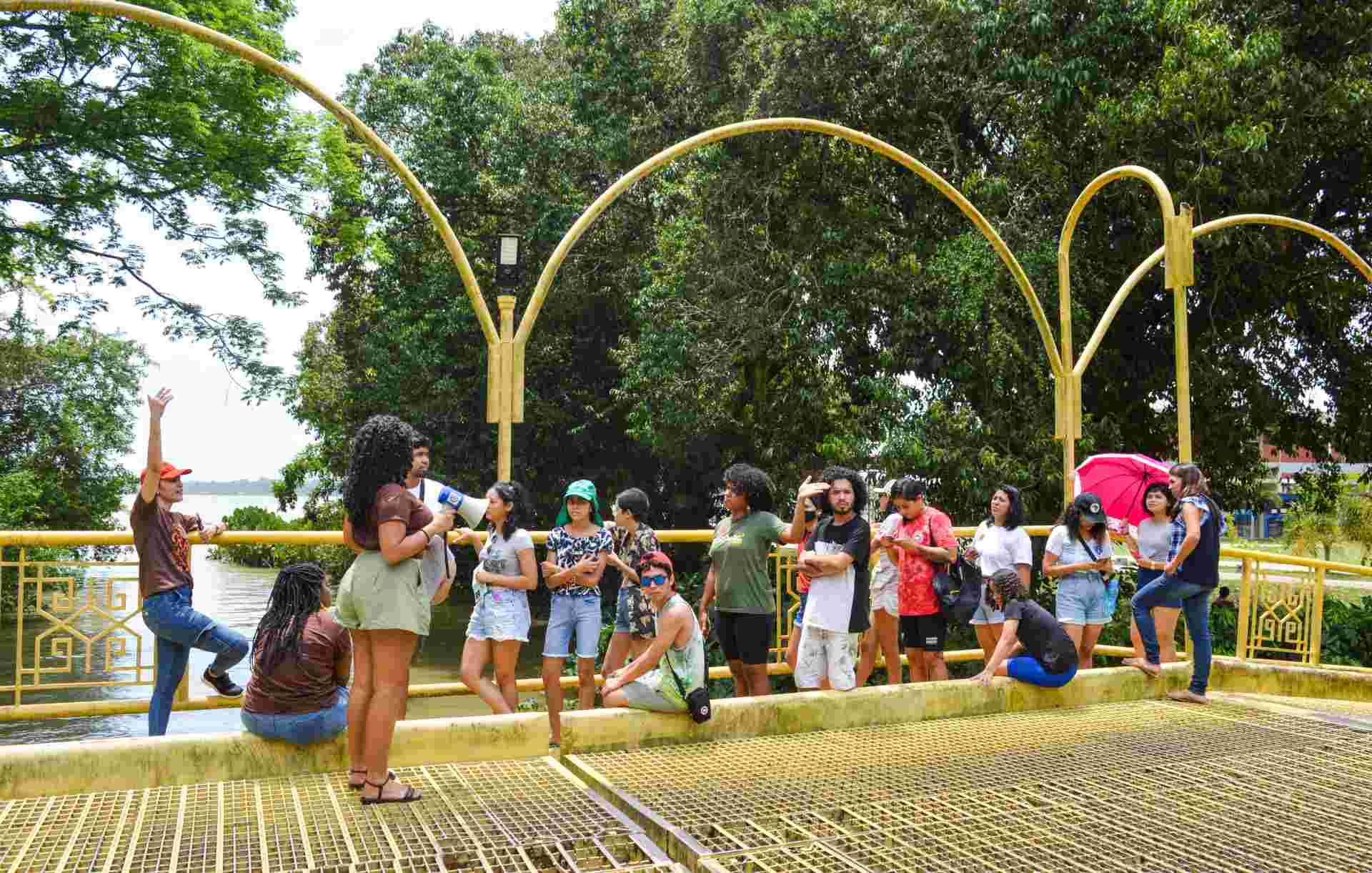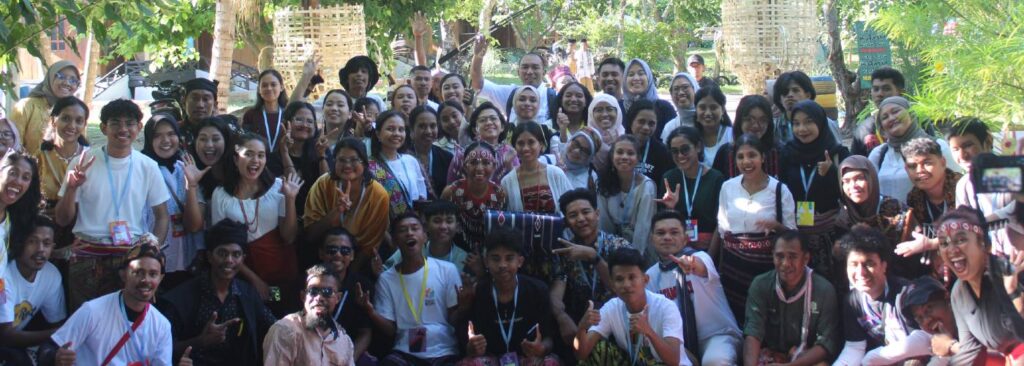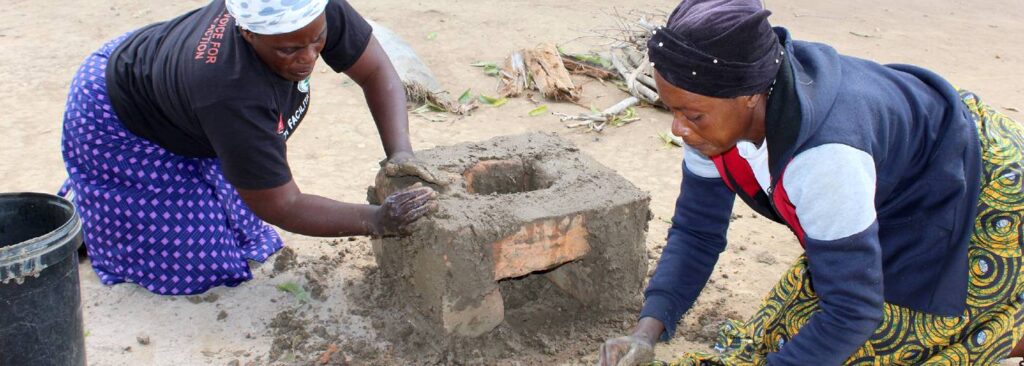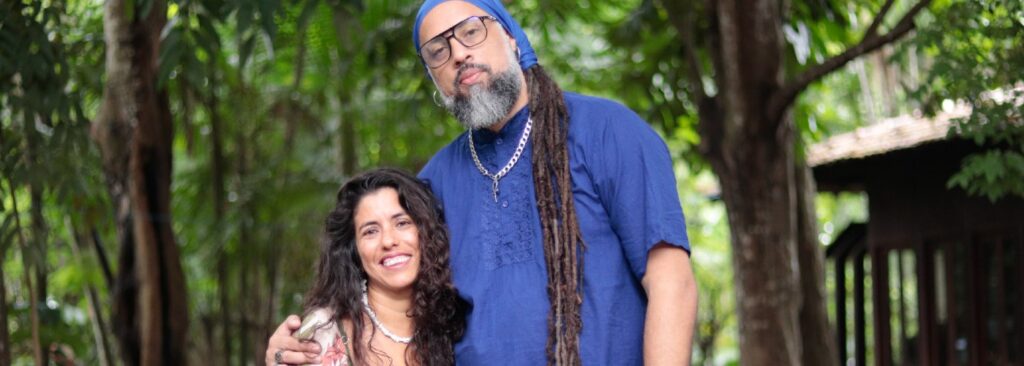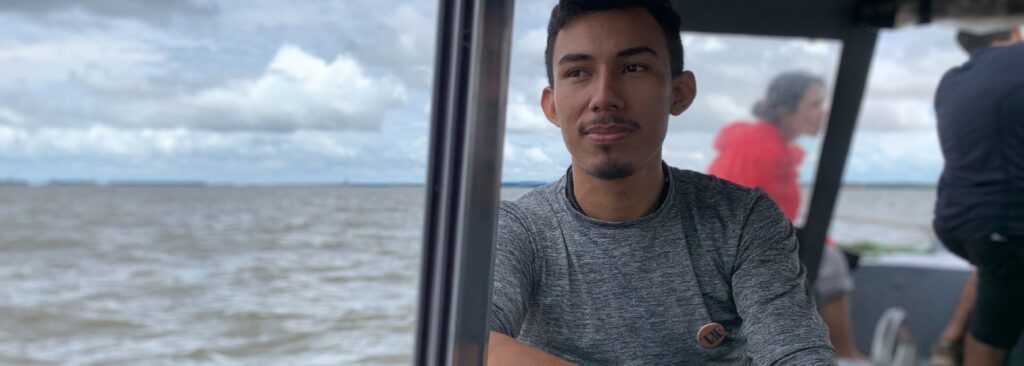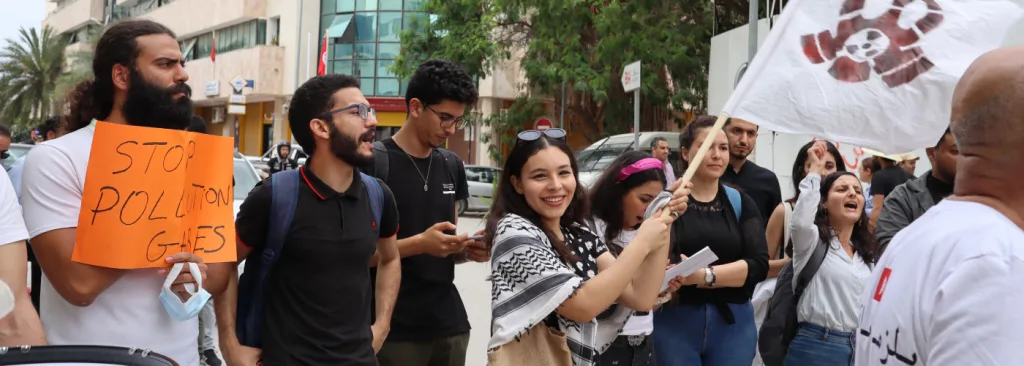“With 29.8 million inhabitants, 76 percent of the population in the Brazilian Amazon is urban and faces problems typical for large capitals, but the main problem is their greatest resource: water.” This statement lies at the root of Mandí, an organization working to improve sanitation and climate adaptation in Amazonian cities in the state of Pará, by raising awareness and influencing environmental and climate policy. We visited Mandí’s new headquarters to discuss their work and see how they are preparing for COP30 in November, when their city will take the global stage.
From local water sanitation to international climate advocacy
The idea of Mandí took shape nine years ago in Belém, an Amazonian metropolis with 1.3 million inhabitants and this year’s host of COP30. Belém scores ninth worst in water sanitation of all Brazilian cities. While environmental protection in more remote parts of the Amazon is discussed more widely, water sanitation is not often discussed. A case in point is Belém’s rivers and canals, which were clearly not taken into account by its urban planners. This motivated a group of mainly oceanography students to found an organization specifically to tackle urban river pollution and the right to sanitation: Mandí. They initially aimed to raise awareness about the state of the rivers and sanitation in the city, but over time this focus has broadened to climate justice and empowering young women to fight for it.
While still at university, they started a project to raise local awareness about the city’s rivers by organizing expeditions along the Tucunduba riverbanks. Since 2017, 395 people have participated in 18 editions of the project. Gabriela Miranda, Logistics and Operations Advisor at Mandí, remembers an edition that really moved her: “You could really see that it engaged not only the people taking part, but also the neighborhood’s inhabitants. An older man came up to us and said this was first time he’d seen people talking about the river as something alive. Until then he had only seen people treat it as an outlet, just for discarding trash.”
In 2021, Mandí provided free online training for 40 young women on participating in political debates and leading policy advocacy about Belém’s environmental policies. They drafted an advocacy plan that later led to the official Climate Agenda for Belém. At the same time, Mandí and Rede Jandyras submitted a proposal to create the Municipal Forum on Climate Change, which was approved in Belém’s Multi-Year Plan 2022-2025.
After just two years, the climate forum has become an important space for debate where local demands are heard by city authorities. Something that really changed Mandí’s relationship with the municipality, according to Public Policy Advisor Gabriel Creão. “After the creation of the forum, we were able to work more closely with the municipality and public officers. We now have better access to the power in the city, and we can work more closely on monitoring and influencing public policy.”
Advocacy and mobilization
Occupying these policy spaces is important. Mandí and a network of organizations now also advocate for climate policy, not only for climate adaptation in the city of Belém, but also within national and international climate policy. In 2024 they provided input for the Nationally Determined Contributions (NDCs) in the Brazilian government’s climate plans, making sure the urban voices of the Amazon were heard.
Mandí’s network also holds the government accountable by tracking the implementation of promised climate goals, collecting data, providing research to parliamentarians, and keeping track of possible harmful laws – such as laws allowing oil exploitation in the Amazon. If promised goals aren’t met, they apply pressure for more action.
As Mandí focuses on mobilizing young, urban, and mostly non-white Amazonian women to press for climate justice local and globally, they need to make sure their rightsholders can accept the challenge. Mobilization Advisor Natasha Reis explains how: “We provide food, transportation, find flexible times and find locations where we need their voices to be heard, such as remote districts and slums, where climate change hits hardest.”
COP30 is coming to town
The world’s climate summit is coming to Belém in November, but it will be difficult to get there – especially for international NGO’s – and the city is still building venues, parks, and roads. “The question of whether Belém is ready for COP30 is irrelevant to me. It’s good that the whole world will now see the reality of living in a city like this. But the downside is that all the money put into COP30 could have also gone straight to the people who need it most,” says Communications Manager Dalissa Cabral.
Nonetheless, the organization is preparing hard for COP30. Besides doing the necessary paperwork to participate, Mandí is also planning events to include the city’s voice in the discussions. But they’re also planning for the day after. “We’re already looking beyond COP30. When the climate summit leaves the country, we need to make sure the conversation here continues, and the legacy of COP lives on,” says Dalissa.
Voices for Just Climate Action
With support from the Voices for Just Climate Action program, Mandí was able to build a network, invest in staff training, and increase their activities. They also recently moved into their own headquarters, where they can have face-to-face meetings and host workshops, which will be of great use during COP30.

